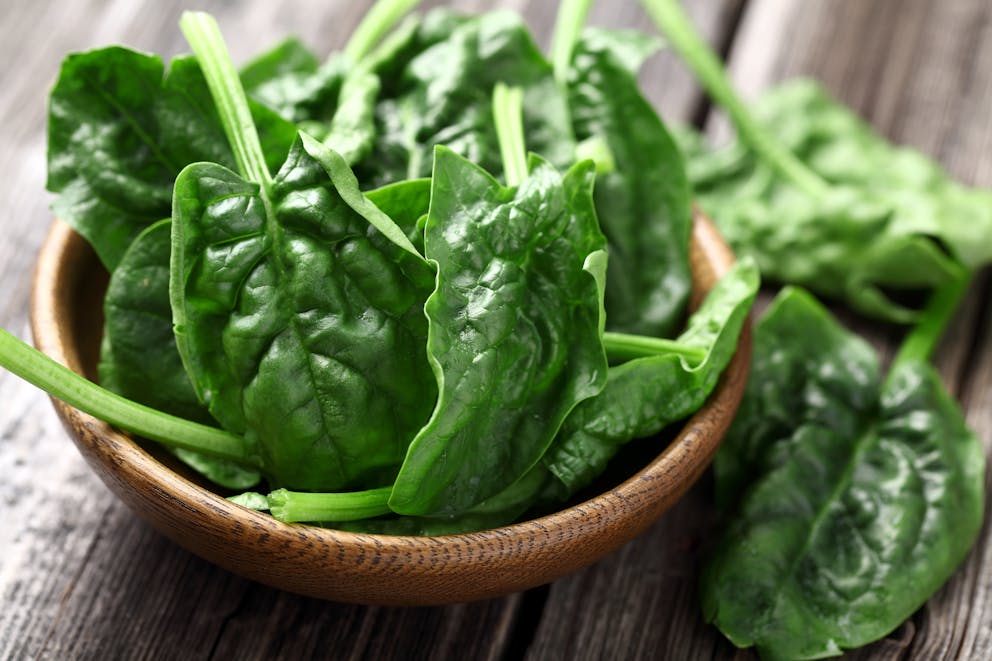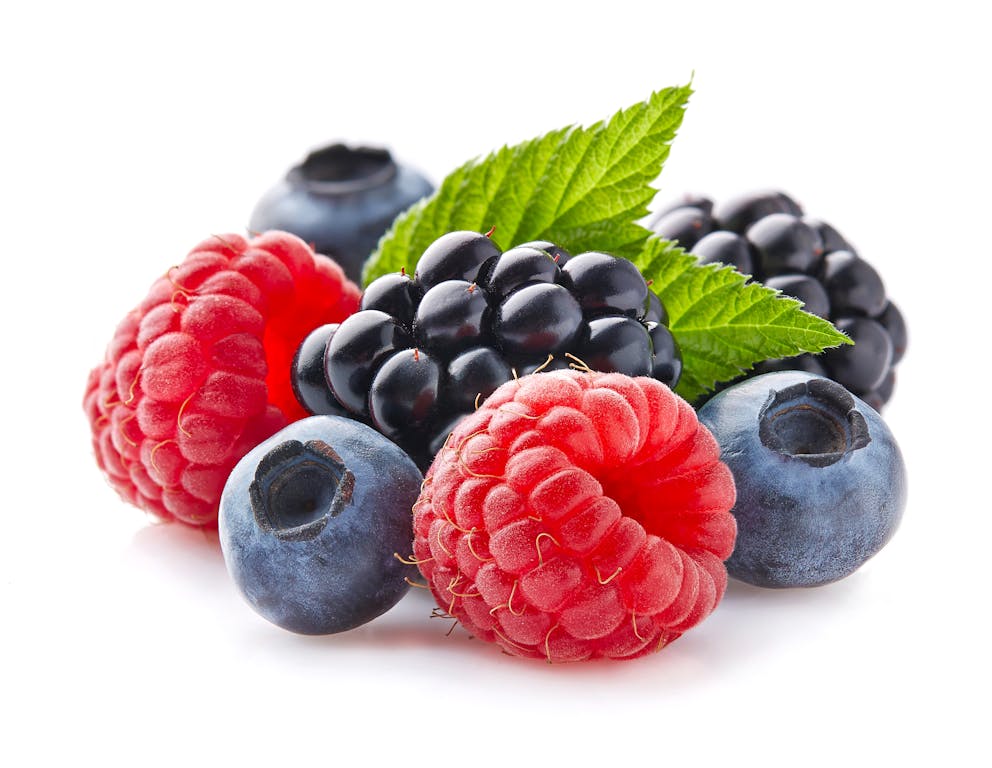Is it Possible to Gain Weight on Fruits and Vegetables
Vegetables are often touted as the ultimate health food, but can they cause weight gain? The answer might surprise you. While leafy greens and non-starchy veggies are unlikely to pack on the pounds, not all vegetables are created equal regarding weight management.
It turns out loading up on veggies might be the secret ingredient we've overlooked for tipping the scales in our favor. Certain types of vegetables, particularly starchy ones, may contribute to weight gain if consumed in excess.
So here's the scoop on how greens affect your scale numbers. Let's dig in and uncover the truth.
The Surprising Truth About Vegetables and Weight Gain
You've probably heard that eating more vegetables is a surefire way to lose weight. But is this really true for all types of veggies?
Let's explore the relationship between vegetable intake and body weight, focusing on the misconception that all vegetables are equally beneficial for weight management.
While vegetables are an essential part of a healthy diet, not all have the same weight impact. Some vegetables, particularly starchy potatoes and corn, are higher in carbohydrates and calories than non-starchy vegetables.
This means that consuming large amounts of these vegetables may not be as helpful for weight loss as you think.

Leafy Greens and Low Carb Content
Leafy greens, such as spinach, kale, and lettuce, are well-known for their low-calorie and carbohydrate content. But how does this contribute to their inability to cause significant weight gain?
The answer lies in their nutrient density. Leafy greens are packed with essential vitamins, minerals, and fiber, while being remarkably low in calories and carbs.
This means you can eat many of these vegetables without consuming excessive energy, making them an excellent choice for those looking to manage their weight.
The Role of Fiber in Weight Management
Fiber is a crucial component of a healthy diet, and vegetables are an excellent source of this essential nutrient. But how does fiber help with weight management?
Fiber helps slow digestion, which can help regulate blood sugar levels and prevent sudden spikes in insulin. This is important because high insulin levels can increase fat storage and weight gain.
Additionally, fiber helps promote a feeling of fullness, reducing overall calorie intake and aiding in weight management.
To put this into perspective, a salad with mixed vegetables and seven cups provides only 10.8 carbs, with 7 grams of fiber, resulting in only 3.8 net carbs.
This means you can enjoy a satisfying meal without consuming excessive amounts of carbohydrates that could potentially lead to weight gain.
The Impact of Fruit Consumption on Weight
Fruits are often touted as healthy snacks, but can they contribute to weight gain? Let's delve into how fruit consumption can influence weight, focusing on the sugar content in modern fruits and their metabolic effects.
While fruits are naturally sweet and contain various essential nutrients, it's important to consider the type and amount of fruit you consume. Some fruits, such as apples, pears, and melons, have a higher fructose content than others.
Selective Breeding and Sugar Content
Over the years, selective breeding has increased the sweetness and sugar content of many fruits. This means the fruits we consume today may have a higher sugar content than their ancestral counterparts.
For example, a study published in the journal Scientific Reports found that modern apples have a significantly higher sugar content than wild apples.
This increase in sugar content can contribute to overall calorie and carbohydrate intake, which may impact weight management.
Metabolic Effects of Fructose
Fructose, the primary sugar found in fruits, is metabolized differently by the body compared to other sugars like glucose. When consumed in excess, fructose is primarily processed by the liver, which can lead to a range of metabolic issues.
Studies have shown that high fructose intake can contribute to insulin resistance, a condition where the body's cells become less responsive to insulin.
his can increase fat storage, particularly in the abdominal area, and may increase the risk of weight gain and obesity.
Nutritional Benefits Versus Sugar Content
While it's important to be mindful of fruits' sugar content, it's equally crucial to recognize their nutritional benefits. Fruits are packed with essential vitamins, minerals, and phytonutrients that can support overall health and well-being.
The key is to balance enjoying the health benefits of fruits while minimizing the potential impact on weight. Opting for fruits with lower sugar content, such as berries, and consuming them in moderation can help strike this balance.
It's worth noting that fruit consumption can lead to weight gain depending on the amount and frequency. Apples, pears, and melons have a high fructose content, with apples and pears containing 60% fructose.
As mentioned earlier, fructose is metabolized differently by the liver and can contribute to insulin resistance and weight gain, especially around the midsection.
Strategies for Incorporating Fruits and Vegetables into a Weight Management Plan
Now that we've explored the impact of vegetables and fruits on weight, let's discuss some practical strategies for incorporating these nutrient-dense foods into a weight management plan.
The goal is to include fruits and vegetables in your diet in a way that supports your weight loss efforts while ensuring you don't miss out on essential nutrients.
Choosing Vegetables Wisely
When selecting vegetables for weight management, it's important to choose options that are less likely to cause bloating or fluid retention.
Some vegetables, such as cruciferous veggies like broccoli and cauliflower, contain compounds that can lead to gas and bloating in some individuals.
To minimize these effects, consider opting for vegetables that are gentler on the digestive system, such as leafy greens, cucumbers, and zucchini.
These vegetables are not only low in calories and carbohydrates but also high in fiber and water content, which can support weight loss efforts.

Smart Fruit Selection
When it comes to fruit selection, the key is to choose options with lower sugar content or consume them in moderation to minimize potential weight gain.
Berries, such as strawberries, raspberries, and blackberries, are excellent choices as they are lower in sugar compared to other fruits and packed with antioxidants and fiber.
If you enjoy fruits with higher sugar content, such as bananas or grapes, consider consuming them in smaller portions or pairing them with protein or healthy fats to slow down the absorption of sugar and minimize its impact on blood sugar levels.
Incorporating High-Fiber Options
Fiber is a crucial component of a healthy eating plan, and incorporating high-fiber fruits and vegetables can be particularly beneficial for weight management.
Fiber helps promote feelings of fullness, reduces overall calorie intake, and supports healthy digestion.
Some excellent high-fiber options include berries, apples (with the skin), pears, avocados, Brussels sprouts, and artichokes.
Aim to include a variety of high-fiber fruits and vegetables in your diet to reap the benefits and support your weight management goals.
It's important to note that bloating or fluid retention from vegetable intake is more likely than fat gain. While some vegetables may cause temporary discomfort, they are unlikely to contribute to long-term weight gain.
Additionally, fruits provide essential vitamins, minerals, and phytonutrients that offer some protection against the negative effects of sugar.
Exploring the Impact on Weight in the Keto Vegetarian Diet
In the labyrinth of dietary choices, the Keto Vegetarian Diet stands out, promising both health and weight management.
While vegetables are hailed as nutritional powerhouses, their role in weight gain often sparks curiosity.
Within the realm of the Keto Vegetarian Diet, vegetables take center stage, offering a bounty of nutrients while aligning with the low-carb principles of keto.
Delving into the intricacies of this dietary approach, understanding the interplay between vegetables and weight becomes pivotal for those navigating the keto vegetarian lifestyle.
Conclusion
The relationship between vegetables and weight gain is more complex than you might think.
Eating plenty of green leaves along with non-starchy veggies can do wonders for maintaining a healthy waistline; however, let’s not forget paying attention to our servings—and the way we prep—their starchier friends.
Try mixing lots of different vegetables into what you eat, pick the ones packed with fiber, and combine them with slimming proteins plus some healthy fats to both drop pounds and fuel your body right.
Remember, when it comes to weight management, it's all about balance. Tuning into what your body truly needs and making wise eating choices lets you reap the veggie benefits worry-free, sidestepping any surprise weight gain.
Previous blog
Amazing Skull Massage for a Deep Restful SleepTags

Popular
08/31/2023
11.6K views
08/31/2023
14.6K views
08/31/2023
145.6K views
03/18/2024
11/21/2022




